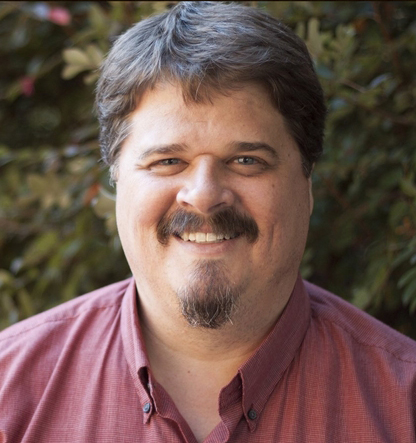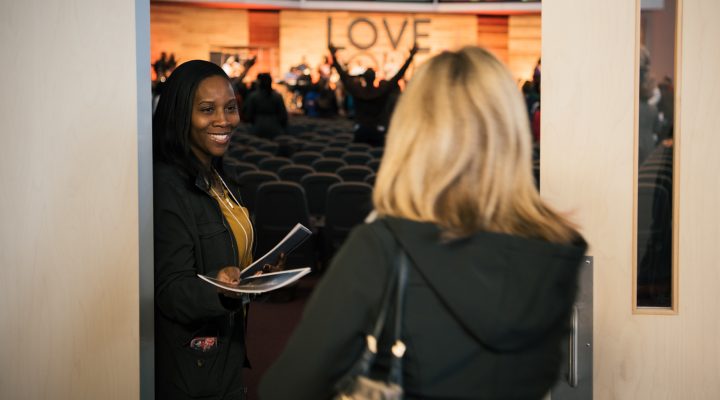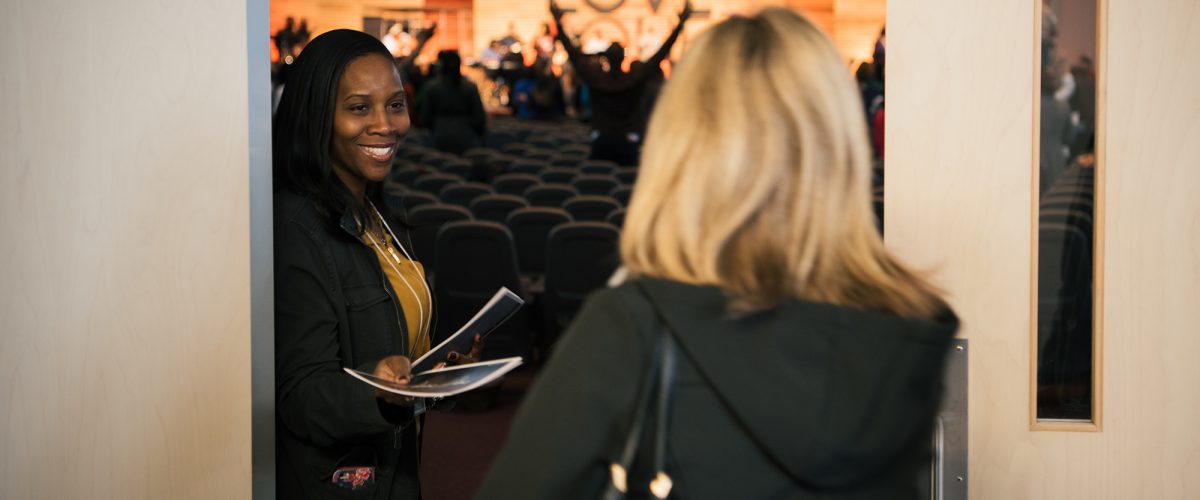I learned a lot of things in seminary, like how to perform baptisms and administer Communion, why understanding cultural context is important when reading and interpreting Scripture, and the importance of sneaking Amy Grant lyrics into almost any theological conversation. These are all important things to know.

Bert Montgomery
I also learned the ancient biblical Hebrew (well, barely enough to make a passing grade). Learning Hebrew gave me a renewed appreciation for Amy Grant’s song “El Shaddai.” It often refers to God as Most High, yet in the Hebrew, it carries with it more earthly imagery, such as High Mountains God, or since it is feminine, Nurturing Bosom God. Even, as one rabbi acknowledged, God of Great Breasts. (I may be paraphrasing, but only a little.)
One thing seminary did not prepare me for, though, was that there might one day arise a situation in which, rather than being inappropriate, creepy or predatory, complimenting a woman’s cleavage would actually be the proper pastoral thing to do.
Margie is tall, thin and full of joy, and she has always been a good hugger. One Sunday morning as I stood at the door welcoming people to worship, Margie walked in. Instead of putting her arms out for the usual hug, though, she put her arms up to protect herself.
“Instead of putting her arms out for the usual hug, though, she put her arms up to protect herself.”
No offense, she assured me. She just had surgery that week and was still very sore. None taken, I assured her. I had not been aware she was having surgery, I said, or I would have visited and prayed. Not to worry, Margie said, it was outpatient, and she didn’t tell anyone.
Then, with a nervous smile, she slowly waved her hand back and forth in front of her chest. There, revealed slightly by a low neckline, were two … mountains … where there had recently been none.
“Oh!” I said nervously. Our eyes met, then my eyes glanced down again, then back up. “Well,” I assured her, “they look great!”
We both laughed. The awkwardness passed. A hand shake replaced the usual hug that week. Her smile and her “thank you” indicated both appreciation and deep satisfaction as she walked on into the sanctuary.
Sanctuary. A place of refuge, safety, rest, affirmation, acceptance, healing and hope. In a hostile world, this church had become a true sanctuary, in every sense, for Margie.
Margie had a different name for most of her life. She was assigned another gender at birth, and was named, dressed and treated accordingly. Despite outward body parts and all the expectations of others — family, peers, schools and churches — Margie always seemed to know inwardly who she was, and slowly, sometimes painfully, grew to accept and embrace her true self rather than ignore, deny or fight it.
“Margie always seemed to know inwardly who she was, and slowly, sometimes painfully, grew to accept and embrace her true self rather than ignore, deny or fight it.”
By the time I first met Margie, she already had begun to outwardly present herself as the woman she is. A mutual friend of ours told her about our church and assured her she would be welcomed and loved. She came, and she was welcomed, and she was loved.
My friends of the Jewish faith talk about the rich complexities of our shared Hebrew Scriptures and how it is more accurate to say God made us male and female, both/and, as if gender identity is a spectrum in which many of us fall more toward one end or the other, while others fall at many different points in between.
My friends in scientific fields talk about the rich complexities of gender and the interconnectedness of outward organs, inner organs, hormones and chromosomes, the mind and cultural expectations. It’s as if gender identity is a spectrum in which many of us fall more toward one end or the other, while others fall at many different points in between.
My friends in Christian pastoral care and counseling talk about the richness of the theological, psychological, biological and sociological complexities of gender, as if gender identity is a spectrum in which … well, you know the rest.
Sadly, too many churches, preachers and church-goers fail to appreciate such rich complexities in life and faith. We choose instead shallow, rigid dogmatic certainties. We resist the vastness of God; we miss out on the wonder-filled diversity in all God’s beautiful creation; and we deny the image of God in our transgender friends, neighbors and family members.
We limit our ability to recognize, receive and celebrate God’s gifts. We limit our ability to recognize and know God. And we cause devastating, even deadly, harm to countless beloved children of God.
I am blessed to serve as pastor with a welcoming and affirming church — a church that challenges us to remain open to holy wonder, and a church that truly strives to be a sanctuary for all.
And I am blessed to know Margie. For the beauty and joy she brings to our fellowship, thanks be to El Shaddai!
Bert Montgomery serves as pastor of University Baptist Church in Starkville, Miss. He also teaches religion and sociology courses at Mississippi State University and has authored five books.
Related articles:
Why being transgender is not a sin | Opinion by Mark Wingfield


